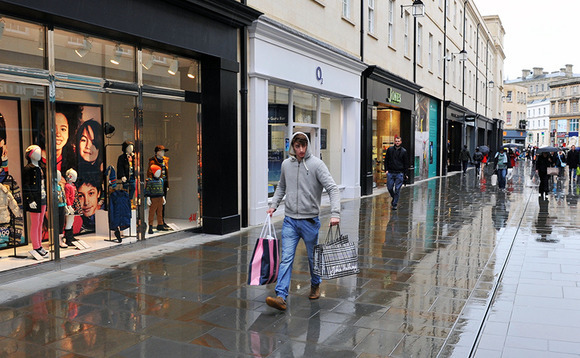
Consumer uncertainty sees retail feeling the pinch

A number of PE-backed UK high street retailers have shown signs of struggling throughout February and March, off the back of a wider downturn in consumer confidence in the country. Kenny Wastell reports
"As the economy cools, discretionary consumer spending will always be the first thing to fall away," says a senior member on the private equity team at a law firm. This view, in itself, is not contentious, but the fact that the topic is once more gaining prevalence among UK industry insiders points to a significant shift in the country's consumer sector that could have a notable impact on private equity investment in the coming years.
The past month has provided further evidence of the struggles facing portfolio companies in the UK consumer space. At the end of February, Rutland Partners-backed electronics retailer Maplin Electronics entered into administration, and Endless announced the divestment of footwear retailer Jones the Bootmaker to Pavers with a concession that the fortunes of the business "could not be turned around" due to adverse retail conditions. This was followed in March by TPG Capital's Italian-themed restaurant chain Prezzo, as well as Brait Private Equity-backed clothing and accessories retailer New Look, pursuing company voluntary arrangements (CVA).
The human impact of these developments was laid bare with Prezzo announcing the closure of 94 of its restaurants and New Look intending to cut 980 from its headcount of 15,300. Endless's exit from Jones the Bootmaker safeguarded 389 jobs and 42 stores, though at the time of the GP's initial investment a year previously, the company had a headcount of 800 across 72 stores. Similarly, earlier this year, Three Hills Capital Partners- and Hutton Collins-backed burger chain Byron announced the closure of almost one third of its restaurants.
High street on high alert
Many of the challenges facing the retail and casual dining spaces are segment-specific, as the source tells Unquote. "There are areas within the consumer space that are struggling," he says. "We are seeing high-profile businesses in the casual dining space struggling, largely due to oversupply and Brexit-related factors, such as food price inflation. The high street is another area of concern. This is partly as a result of decreasing consumer confidence, but some of these brands have been in trouble for some time and affordable credit has meant they have survived for longer than they might have otherwise."
It is also worth noting that challenges in the retail space are not specific to private equity ownership models, with corporates such as Carpetright and Select Fashion also falling into trouble in recent months. Traditional bricks and mortar retailers have been losing market share to online behemoths such as Amazon for some time, rendering their business models more susceptible to downturns in consumer spending.
Even aside from the fact that volatility itself also creates opportunities for private equity, there are still some exciting growth developments arising" – Law firm private equity team member
Yet, while there has been a decline in appetite for casual dining investments recently – with two buyouts in 2017 from a post-crisis peak of 10 in 2014 – the source tells Unquote that the picture in retail is less clear cut. "Even aside from the fact that volatility itself also creates opportunities for private equity, there are still some exciting growth developments arising," he says. "Retailers are increasingly able to implement AI and data analytics to get to know their customers and identify follow-on sales opportunities, for example. Continuing globalisation and digital sales have also meant many businesses can expand into new markets without having to establish too much of a physical presence there. These are developments that can be supported by private equity owners."
Setting aside investments in food and drug retailers, there has been just one private-equity-backed buyout in the UK retail space to date in 2018; LDC's acquisition of Scottish opticians group Duncan & Todd from BGF and management. Yet the 17 transactions seen within the sector in 2017 was the joint highest total since 2012, according to Unquote Data. However, there is a caveat, in that only six of these 2017 transactions took place in the second half of the year.
Whether recent events in the British retail sector will lead to a similar slowdown in investment to the one witnessed in the casual dining space remains to be seen. Yet, on a portfolio level, the source suggests a significant shake-up is taking place. "We are seeing an increasing number of CVAs and our restructuring team is becoming increasingly busy," he says.
Latest News
Stonehage Fleming raises USD 130m for largest fund to date, eyes 2024 programme
Sponsor acquired the public software group in July 2017 via the same-year vintage Partners Group Global Value 2017
Stonehage Fleming raises USD 130m for largest fund to date, eyes 2024 programme
Czech Republic-headquartered family office is targeting DACH and CEE region deals
Stonehage Fleming raises USD 130m for largest fund to date, eyes 2024 programme
Ex-Rocket Internet leader Bettina Curtze joins Swiss VC firm as partner and CFO
Stonehage Fleming raises USD 130m for largest fund to date, eyes 2024 programme
Estonia-registered VC could bolster LP base with fresh capital from funds-of-funds or pension funds









